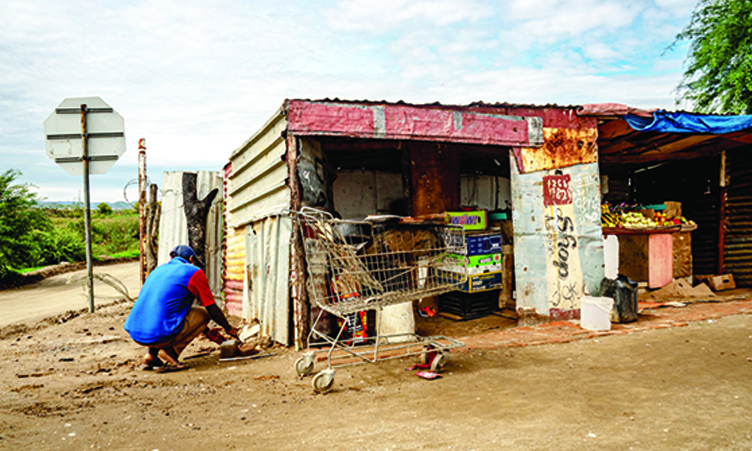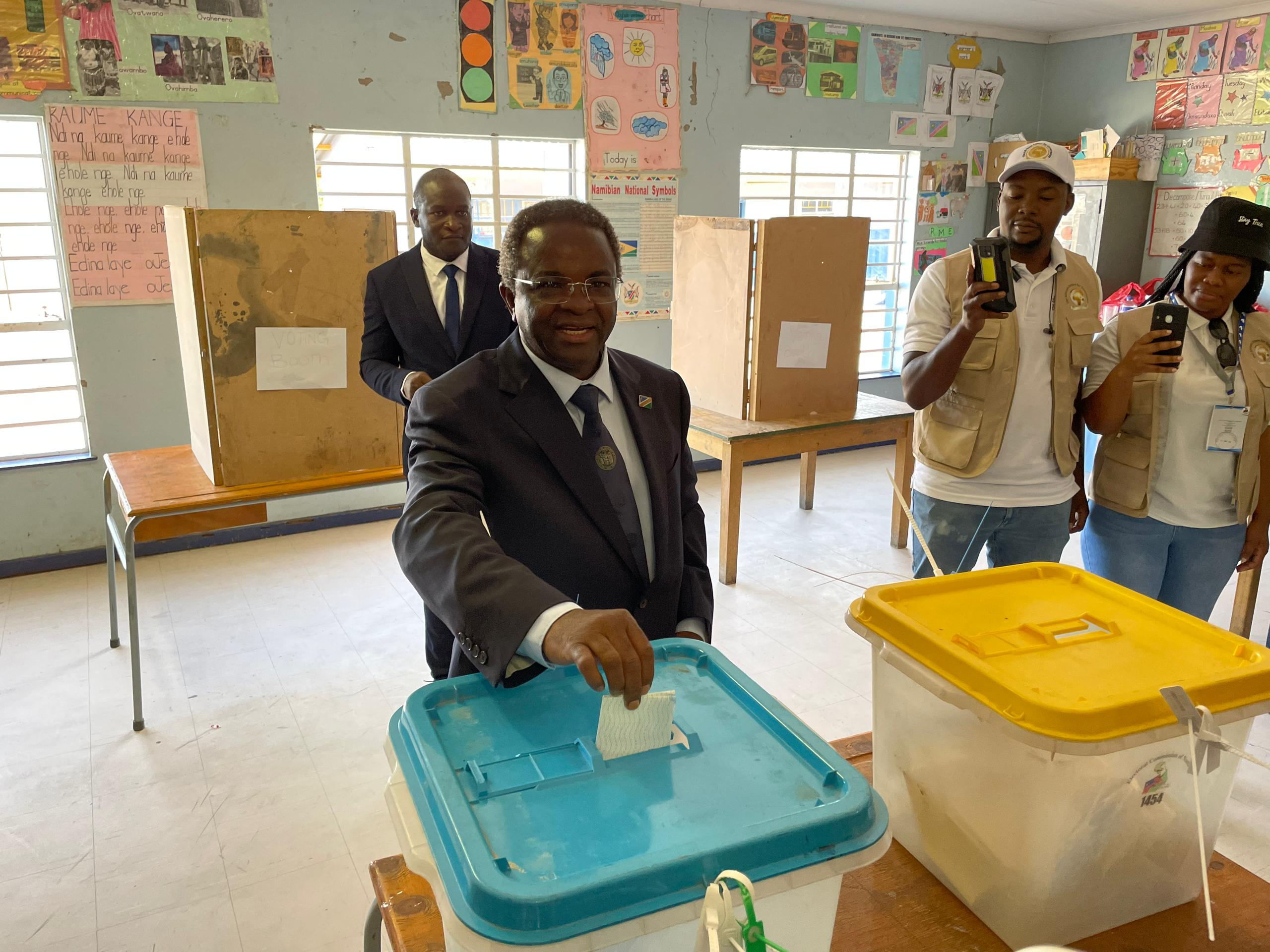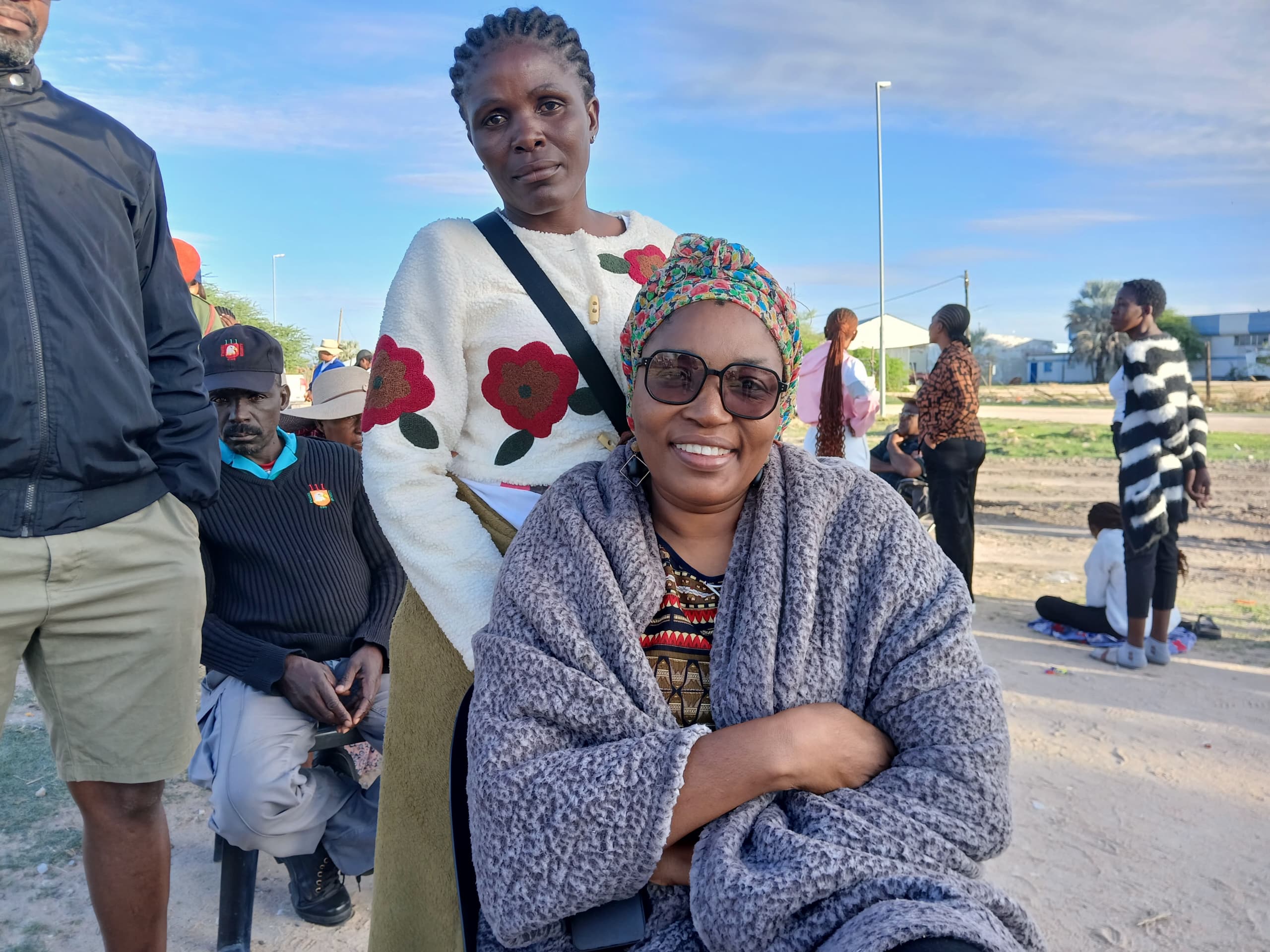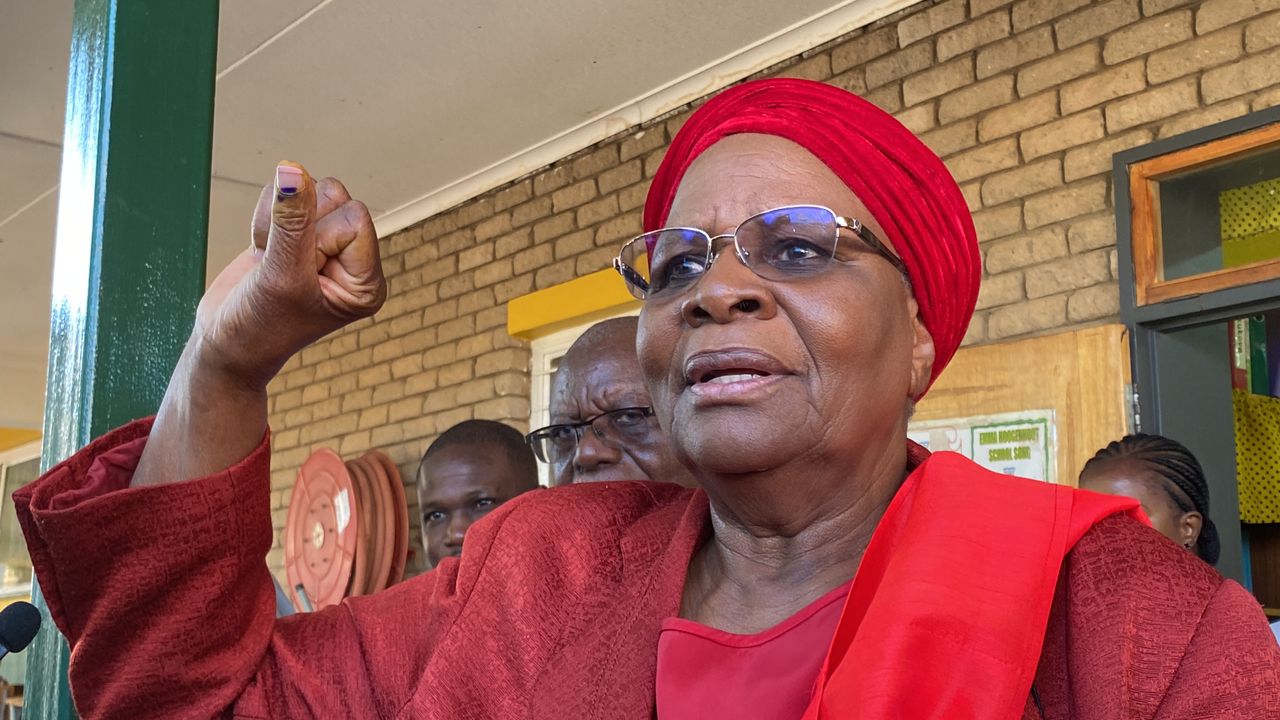FINANCE MINISTER Iipumbu Shiimi was yesterday accompanied by elders and schoolchildren to parliament, increasing pension benefits by N$100 as he tabled a whopping N$84,6 billion national budget for the 2023/24 fiscal year.
Shiimi themed the budget ‘Economic Revival and Caring for the Poor’.
Analysts yesterday said while it appears to be a positive budget, only its proper implementation would uplift the poor.
The N$84,6 billion will still be largely spent on operations (N$66,1 billion), debt servicing (N$10,2 billion) and the development budget, which was allocated N$6,5 billion.
Shiimi said this record budget would be funded by government collections of N$74,4 billion – leaving a budget deficit of N$9,1 billion, which pushes up the country’s total debt to N$150 billion.
The minister said the economy is expected to grow by 3,2% only on the back of mining activities.
Shiimi aid good revenue inflow is expected from the Southern African Customs Union (N$24 billion), and recovery in local economic activities supported by gains from improved tax compliance.
The state expects to collect taxes to the tune of N$67 billion, mainly from individuals and companies at N$26 billion.
Non-tax revenue is estimated at N$7 billion.
Shiimi said he was fully aware of the continued hardships endured by many citizens, and asked that they bear with the suffering.
He said their needs can only be attended to through fiscal sustainability and sustainable economic growth.
The minister said while the agricultural sector, tourism and services sectors are the biggest employers in the country, the Namibia Investment Promotion and Development Board (NIPDB) has called for a renewed focus on high-value fruit, the beef value chain, as well as film and television as means to create employment and growth.
Shiimi said the budget captured most of the needs in the economy, covering a planned census, the renovation and building of classrooms, the employment of teachers and the registration as well as education of voters.
Pensioners and food bank recipients walked away with a N$100 increase in their monthly grants.
The disability grant for beneficiaries under 18 was increased from N$250 to N$1 400 per month, while N$69,8 million was set aside to attend to about 30 000 orphaned children.
The minister allocated N$706 million towards a census.
As 2024 is an election year, Shiimi also allocated N$295 million to the Electoral Commission of Namibia to register voters and educate them.
Shiimi said his budget was targeted at maintaining the public fiscal stance on a sustainable path while simultaneously making the requisite provisions to create a conducive policy environment to stimulate economic activities and bring about much-needed quality jobs.
He said he is no longer giving free money to public enterprises and has allocated them N$425,4 million, compared to over N$2 billion in the past.
Shiimi has, however, placed some hope in well-performing public enterprises, which he said would yield positive returns to the treasury this fiscal year in dividends.
These include: N$600 million from the Namibia Post and Telecom Holdings Company (NPTH), N$300 million from Namibia Desert Diamonds, N$400 million from the Bank of Namibia, and over N$1,2 billion from the Namdeb Group.
The minister said the Ministry of Agriculture, Water and Land Reform has acquired two farms near the Neckartal Dam for a green scheme of which N$10 million has been made available to start its development.

ALLOCATIONS
The biggest taker from the budget remains the Ministry of Education, Arts and Culture, which was allocated N$16,7 billion.
Included in that is N$200 million for the recruitment of additional teachers, and an additional N$570 million for the construction and renovation of classrooms, hostels and offices.
The Ministry of Higher Education, Innovation and Training was allocated N$3,8 billion, with N$892 million set aside for the University of Namibia, N$492 million for the Namibia University of Science and Technology, and N$1,6 billion for the Namibia Students Financial Assistance Fund.
The Ministry of Gender, Poverty Eradication and Social Welfare was allocated N$6,5 billion, while the Ministry of Health and Social Services will receive N$9,7 billion.
About N$700 million in the health budget has been set aside for investment in healthcare facilities as well as the recruitment of medical personnel and the acquisition of pharmaceuticals and ambulances.
The Ministry of Agriculture, Water and Land Reform received a total of N$2,4 billion, while the Ministry of Industrialisation and Trade received N$297,6 million.
The Ministry of Finance and Public Enterprises has been allocated N$5,8 billion, including N$2,7 billion for the Public Service Medical Aid Scheme, N$99,3 million for Agribank, and N$49,7 million for the Development Bank of Namibia.
The Ministry of Home Affairs, Immigration, Safety and Security received N$6,7 billion.
The Anti-Corruption Commission has been allocated N$81,7 million, while the Office of the President will receive an allocation of N$956,6 million and the Office of the Prime Minister will receive N$478,7 million.

TAXES
No new taxes were introduced.
However, the minister said he would reduce corporate tax for non-mining companies to 31% in the next fiscal year, and reduce it to 30% the year thereafter.
Shiimi also said taxpayers earning between N$50 000 and N$100 000 would stop paying tax in the 2024/25 fiscal year.
ANALYSTS
Analysts who spoke to The Namibian said it was a positive budget overall.
“These estimates appear more reasonable. The fiscal outlook is improving, and we’re glad to see it moving in a better direction,” Cirrus Capital’s head of research, Robert McGregor, said yesterday.
“We are glad there is a firmer commitment to the increase of the threshold for personal income tax. We are also glad to see dates fixed for decreases in the non-mining corporate tax rate, however, these changes are still small and we question why this could not be expedited,” he said.
The substantial increase in expenditure, however, leaves some questions, McGregor said.
“While these forecasts are more reasonable, there must be a more concerted effort to improve the quality of spend rather than just the absolute number,” he said.
Economist Omu Kakujaha-Matundu yesterday said: “What would make a diffrence would be the timely execution of programmes and projects to make a real difference in terms of stimulating economic growth, which the government has not always been good at,” he said.
Director of the Namibia Informal Traders’ Association Tangeni Shindondola said she was disappointed that the informal economy was not considered in the budget.
– email: lazarus@namibian.com.na, Twitter: @Lasarus_A
Stay informed with The Namibian – your source for credible journalism. Get in-depth reporting and opinions for
only N$85 a month. Invest in journalism, invest in democracy –
Subscribe Now!






